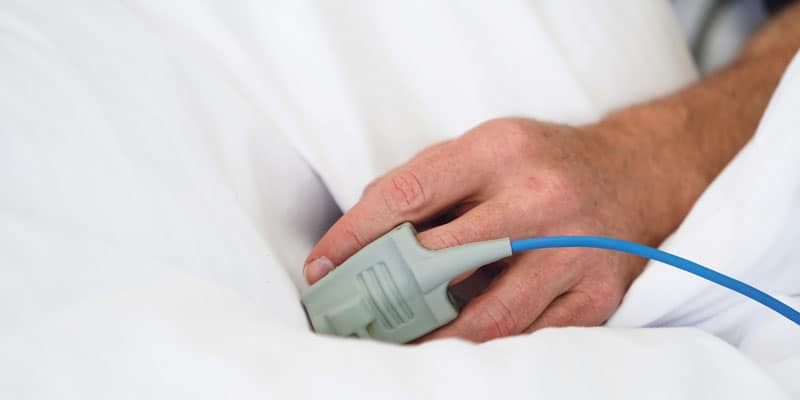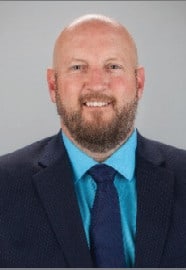Randy Curran of Pristine Medical Billing discusses the issues surrounding billing for home sleep tests.
 by Randy Curran
by Randy Curran
In 1860, Ralph Waldo Emerson wrote “The first wealth is health.” This dictum is still true today. Nonetheless, the medical insurance behemoth has put patients and practitioners in a position where health is seemingly dictated by wealth. There is currently an imbalance. As dental sleep professionals, we must strike a balance – producing profits by providing for people.
What’s the best way to achieve this ever-elusive balance as it relates to home sleep testing (HST)? How can you provide optimal patient care while driving direct revenue now and in the future? Which of the most common sleep testing avenues is best for you, your practice, and your patients?
- Collaborate with a local sleep physician with the aim of building a reciprocal referral relationship?
- Coordinate with a national HST company that will ship devices directly to your patients, assign a sleep physician to interpret the study, and prescribe the appliance when appropriate?
- Purchase or lease HST devices to send them home with the patient from your practice?
The ideal option is to build a relationship with local sleep physicians and MDs. This is the preferred path, but it usually takes a couple years to get beyond the trailhead. Based on my newsfeed, we don’t live in an ideal world, so let’s focus on the other options enumerated above.
When purchasing your own HST unit, there are a couple variables to consider. One commonly asked question – can it be billed to the patient’s medical insurance? Secondly, what insurance carriers allow dentists to send this home with a patient and subsequently receive reimbursement?
The devil is in the details, and this can get a little tricky. Allow me to break it down by the major carriers to help you determine whether the HST should be billed or be given to the patient on a cash pay basis.
- Medicare: Hard “NO!” If you are a Medicare provider, their policy does not allow the DME provider to be involved in any aspect of sleep testing. This includes dispensing the device to a patient on behalf of a medical This is a conflict of interest in Medicare’s eyes. Do not do it.
- Aetna and United Healthcare: Yes, billing the HST to these insurance carriers can be advantageous for a dental practice. Aetna does not require a pre-authorization for home sleep testing and the dentist’s taxonomy number should cross over to the home sleep testing CPT code.
- Cigna and BCBS: It’s not worth billing to either, as almost every plan will require pre-authorization from a medical doctor prior to a 95800 or 95806 being a covered benefit. Also, most BCBS plans will not match the taxonomy code for a dental practice to either of the CPT codes mentioned above.
Of the four major private insurance carriers and Medicare, only two might make sense for a dentist to bill. Now, let’s consider another compounding aspect – Billable vs. Payable.
Most dental practices treating sleep apnea are out of network with medical insurance carriers, and most patients have out of network deductibles above the average allowable for home sleep testing. This combination means that although some insurance carriers may approve coverage for HST, it’s unlikely it will be payable.
With this in mind, let’s examine the options dental practices may have to make this as easy as possible.
If the dental practice is contracted with United Healthcare or Aetna, then, yes, it would be worthwhile billing for home sleep testing. If the dental practice is not contracted with the aforementioned insurance carriers, the dental practice should then simplify this by using a cash pay model for all home sleep testing devices, with the exception of Medicare which should always be referred to a sleep physician or national sleep testing company to ensure compliance with federal rules. This is important enough that I want to reiterate – As a DME provider, your dental practice cannot provide HST to Medicare patients. Period. End of sentence. Full stop.
Approximately half of Pristine Medical Billing’s clients have their own sleep testing devices and use a cash pay model so they can send units home with patients the same day. A successful method deployed by many practices is to charge the patient $95 – $150 for the sleep test and sleep physician interpretation, and then let the patient know that if they move forward with treatment, you will apply this payment as credit toward their treatment cost. There is a proverbial asterisk here though – United Healthcare patients will still need a consultation with a medical doctor boarded in sleep medicine to meet the medical policy for the appliance.
This model works well in many practices. Still, there are situations when patients are insistent their insurance cover the cost of the sleep study. If you are still working to identify a local sleep physician relationship, national sleep testing companies are a great solution in these instances.
…the medical insurance behemoth has put patients and practitioners in a position where health is seemingly dictated by wealth.
At Pristine, we work with a couple of these companies to help dental practices with their sleep testing. These companies can bill the medical insurance carrier as in network providers for not only for the sleep study, but also for the patient’s telemedicine consultation to help reduce the patients out of pocket cost for the treatment.
There are several options for dental practices to get patients sleep tested: collaborate with a local medical doctor, purchase or lease sleep testing devices and use them in a cash pay model, or use a national sleep testing service to coordinate the telemedicine visit and ship the device directly to the patient’s home (while also achieving some of the requirements for insurance coverage for the oral appliance, including Medicare).
There is still another option that may yield positive results – a hybrid of these methods. In this situation, Medicare and United Healthcare patients go to a local sleep MD or a national sleep testing company, as they will meet the requirements of consultations with medical doctors prior to treatment for UHC and testing for Medicare. And for other patients, you can send the patient home with your own HST as a cash pay.
One last tangentially related item to pass on from practices that we’ve seen succeed in Dental Sleep Medicine – some patients will be resistant to a sleep study due to finances. Regardless of which model you’re using, send the patient home with a pulse oximeter at no charge. The aim is that the patient will understand that this is not about a financial reward for the dental practice but about their health and the possible long-term effects of untreated OSA. Pulse oximeters are very affordable, and they can effectively demonstrate for reluctant patients that they really do have an oxygen desaturation problem. Then, Emerson’s words will underscore the importance of the heart rate over the inflation rate.
Randy Curran suggests, when requesting home sleep tests or treatment, don’t bill yourself out of the game. Read more here: https://dentalsleeppractice.com/dont-price-yourself-out-of-the-game-by-randy-curran/
 Randy Curran is the founder and CEO of Pristine Medical Billing. During the past 12 years, Randy has committed his life to helping those with sleep related breathing disorders obtain prior authorizations for coverage while ensuring providers receive fair compensation for care. Randy has been involved in the treatment of more than 38,000 patients while collecting over $85,000,000 for providers from insurance carriers through both contracting and claim submissions.
Randy Curran is the founder and CEO of Pristine Medical Billing. During the past 12 years, Randy has committed his life to helping those with sleep related breathing disorders obtain prior authorizations for coverage while ensuring providers receive fair compensation for care. Randy has been involved in the treatment of more than 38,000 patients while collecting over $85,000,000 for providers from insurance carriers through both contracting and claim submissions.